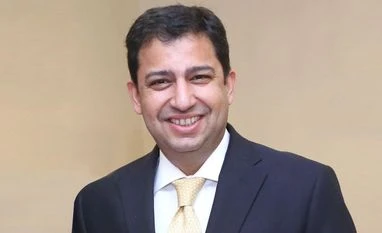The government has delivered an extremely prudent budget, which is high on credibility and quality.
Amidst various uncertainties the government hasn’t deviated from the path of fiscal consolidation and thus further bolstered India’s macro economic stability.
Fiscal math is credible with very reasonable assumptions on tax and non tax revenues growth for FY25.
FY25 assumptions of 11.5 per cent YoY growth in GST, 11.7 per cent YoY in corporate tax and 13 per cent YoY in income tax look reasonable.
Notably there has been no change in corporate and income tax rates.
On the expenditure side the focus has been on the supply side. Effective capex allocation has been increased by nearly 17 per cent YoY while revenue expenditure is budgeted to see very modest growth in FY25.
The finance minister has shown commitment towards net zero target by 2070 by emphasizing on expanding scope for alternative energy and mobility.
More From This Section
Adequate allocation has been made towards schemes like PM Aawas and MNREGA. The government did commendable to mitigate the impact of Covid driven economic slump.
With private sector now fully recovered and private capex likely to pick up hereon, the government is slowly stepping back to prevent crowding out.
To the positive surprise of the bond market, the government delivered better than expected fiscal deficit targets. FY24's target at 5.8 per cent of GDP were better than the budget target of 5.9 per cent.
FY25 target is set at 5.1 per cent of GDP, signaling the intent to get to the medium term fiscal deficit target of 4.5 per cent of GDP in FY26.
Total debt has been lower than earlier estimates and lower FY25 gross markets borrowings with hopefully higher private capex will continue to provide growth capital and momentum to the economy.
Interest rate sensitive segments of the economy may particularly benefit.
In conclusion, this budget conveys strong statement on the direction of policy reforms and the shape that Indian economy is taking.
That said, it’s important to remember that budget is an event and reform is a continuous process.
Reforms pertaining to Make in India and Ease and transparency of doing business will continue even outside the budget as has been the case in the last few years.
Therefore, the build up of confidence in economic stability along with sustainable superior growth shall continue.
Going ahead, India appears to be well placed in the global context.
Overall positivity towards capital markets in India remains strong on resilient domestic demand and the signs of bottoming
of global and domestic monetary tightening cycle.
With the budget being extremely responsible, India’s external sector risks reduces, and stable rupee would thus help attract portfolio and other foreign inflows.
From an equity market perspective, some of the positives appear to be considered in valuations and therefore return expectations from near term perspective should be moderate.
In our view, large-cap oriented strategies across large-cap and flexi/multi cap categories appear to be better placed on a risk- reward basis for now, while its always advisable to not lose sight from individual goal driven asset allocation plan.
Here, asset allocation strategies and funds can help endure the volatility in long term goal planning.
Beyond the near term, the outlook for Indian equities continues to be optimistic and Indian wealth creation story has a long way to go.
Disclaimer: Sundeep Sikka is ED and CEO, Nippon India Mutual Fund. Views expressed are his own.
)